Social media, globalization, lack of mental health support, and even the recent COVID-19 pandemic, have all been contributing to a significant rise in divorce and separation rates in Egypt. However, in the past few years, more and more couples have started seeking couple therapy to find solutions for their arguments and conflicts.
President Abdel Fattah Al-Sisi repeatedly criticized the notion of verbal divorce among Muslims in Egypt, and called for the establishment of a law to make divorce procedures stricter. In 2018, Al-Azhar Institute launched a campaign entitled “Live with them equitably” (وعاشروهن بالمعروف), in an attempt to reduce the high divorce rates in Egypt. Additionally, in 2014, the Coptic Orthodox Church introduced a compulsory pre-marriage course for couples, giving them advice on choosing their partners, understanding marriage, handling finances, dealing with marital problems, among other aspects.
Egyptian Streets spoke to Rasha Salama, relationship counselor, and Founder of The RElation REtreat, about the most common marital problems in Egypt, the stigma surrounding therapy, and how effective couple therapy is among Egyptian couples.
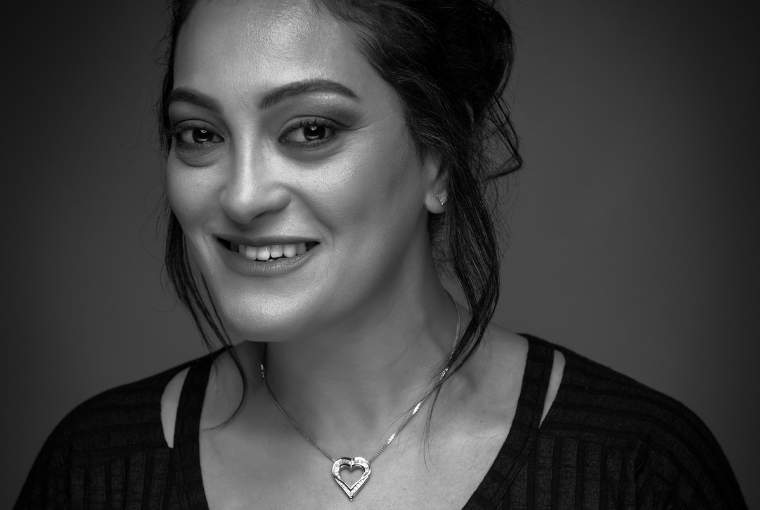
Photo via The Daily Crisp
Her project, The RElation REtreat, offers retreats where couples are encouraged to try different activities together, group retreats that are designed based on a specific theme, such as communication, and customized events where an assessment is done on the couple’s strengths and weaknesses, and a program is designed to fit and address the challenge they’re facing in their relationship.
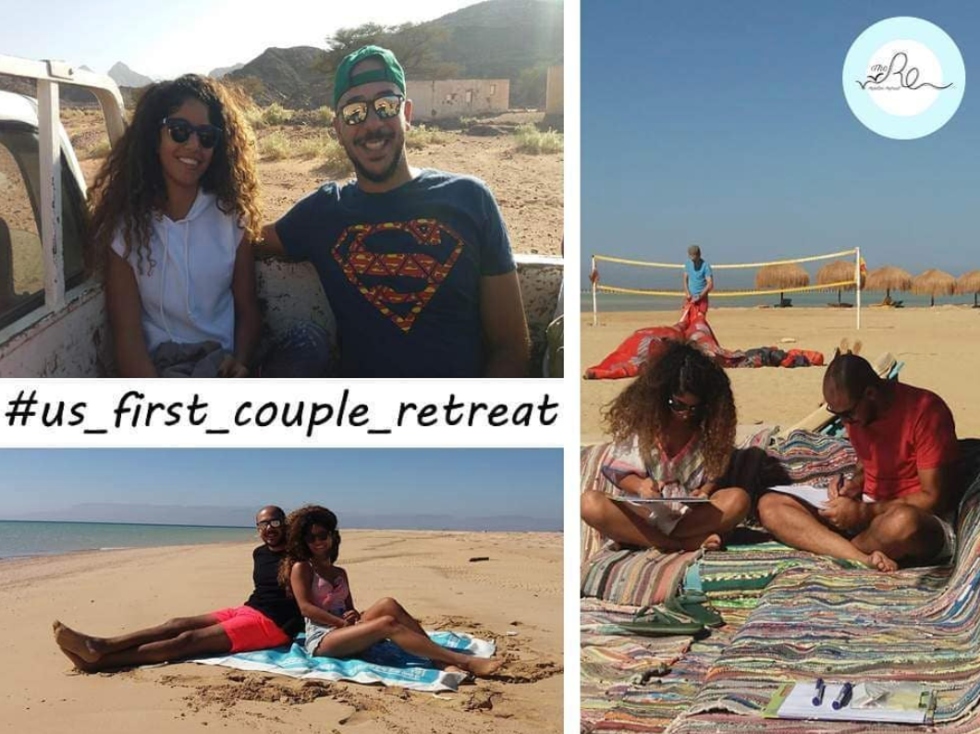
What are the most common marital problems in Egypt?
Marital problems in Egypt are not very different from universal marital problems encompassing loss of passion, managing conflict, sexual dysfunctions, poor communication, differences in parenting styles, financial burdens, and infidelity.
I work with Egyptians who are married to non-Egyptians and the problems are the same; marital issues are universal. I don’t have experience abroad though, but according to what we read in books, the issues are the same everywhere.
Who are the couples who are most likely to come for therapy, from your experience?
Usually, people who come are from the upper socio-economic class because it’s not cheap and, in Egypt, we do not have insurance to cover therapy. However, this social class has become very diverse. From my personal observations, the higher you go in the social class, the more the marital problems are driven by the use of drugs and involvement in extramarital affairs. The lower you go, the more you find common problems like communication issues, financial burdens, and parenting styles.
Why have these problems become common here?
Globalisation plays a significant role in the growth of marital conflicts in Egypt. I believe our exposure to Western culture has brought in concepts that have shaken some of the settled foundations of marriages in our Middle Eastern culture, creating confusion in the modern family.
As we’ve become heavily exposed to Western culture, we’ve become influenced by them in everything; the food we eat, the language we speak, and even the way we interact with each other. To add to that, we have o’det el khawaga (the foreigner complex), which basically characterizes everything coming from the West as great, and frowns upon our own culture.
Feminism, for instance, completely disagrees with the concept of si el sayed, which was not frowned upon previously. People accepted different gender roles, and divorce rates were not so high as couples used to deal with their problems. Another example of Westernization is how most parents used to bring up their children by beating them with the shebsheb (slipper), now we have positive parenting.
Since these concepts became part of our lives, they created confusion because there’s no verbal agreement that “we’re going to follow the Eastern model or the Western model.”There’s a confusing mix, and it’s not agreed upon, so it creates unnecessary tension. This creates more problems than we used to see before. If you compare divorce rates between now and in the past, our grandparents used to get divorced after 20 years of marriage. Today, it’s within the first 7 years.
*Si el sayed is an Egyptian male archetype named after a character in a Naguib Mahfouz novel, where the man in the relationship gives orders to his wife and she submits to him.
How do you deal with these problems?
Having worked with couples from different socio-economic classes, I have to make sure that the therapeutic approach is culturally sensitive. Building a strong rapport is fundamental to the success of the process of therapy, as well as offering a safe and non-judgemental space for both partners to be.
Is the number of marital problems in Egypt increasing or decreasing? Why?
It is quite difficult to know if it is increasing or decreasing; although more couples are seeking couple therapy, this is not an indication that the problems are increasing, simply because if they were not reported, that doesn’t mean they didn’t exist.
We can argue in both directions, that problems are increasing due to an increase in stress levels, and that they could be decreasing due to the increased awareness of general well-being that is being reflected in relationships.
The fact is that marital problems exist and there is an increased awareness about doing something about these problems, even if the solution is to walk away from an unsatisfying or unfulfilling marriage.
How do you deal with extreme problems such as domestic abuse, marital rape, etc.?
In the very first session, it is important to agree on the therapeutic goals with both partners. So, with such “extreme” cases, usually couples agree to address these problems to save their marriage.
Some couples come in with the awareness of their wrongdoing, others don’t always attach a label to it, and this is where the role of psycho-education comes in.
In my experience, domestic violence is very common, but marital rape is not. Some people come with different issues and mid-conversation, you realise that there’s domestic abuse involved. Emotional abuse is also huge in our culture, but nobody speaks about it.
Is couple therapy becoming more common or acceptable in Egypt, or is it still struggling with the same stigma like general therapy?
It is becoming more common and acceptable. However, the challenge is still in the stage at which couples seek help, which is usually at the edge of divorce or when they have resorted to all other non-professional solutions, such as family, friends, religious preachers…etc. and have failed.
The problem is that working with couples at this stage, you deal with a lot of resentment, which is the most difficult emotion to manage.
In your opinion, has social media affected couples and marriages in Egypt? If yes, how?
Social media has affected the whole interpersonal dynamic. People are getting more and more used to communicating virtually, and this has reflected on marital communication. The modes of expression are changing and not all couples have been able to adapt to this change, especially the older generations.
The ‘perfect life’ images portrayed on the different social media platforms have negatively impacted relationships, making couples wonder why they aren’t as happy or how they can be as happy, so it is setting unrealistic expectations. The effect of social media may be subtle, but it is strong.
View this post on Instagram
Talk to us about your initiative ‘The RElation REtreat,’ how did you come up with the idea, what were you aiming to achieve through it, and what has it achieved so far?
After noticing that couples were coming to therapy at a late stage, I wanted an intervention at an earlier stage that would focus on building the relationship instead of fixing the relationship. So, in 2017, I decided to introduce the concept of couple retreats in Egypt, especially after trying it myself, and realizing that it was a turning point in my own marriage a few years earlier.
The aim of The RE is to help couples build and strengthen their marriages in a fun and playful atmosphere. I believe that the foundation of strong communities is a strong marital bond, and this is what I hope to achieve. We have held several events with different activities that bring couples together, in addition to our best seller REkindle REtreat program that addresses effective communication.
We hope that in the coming years, couples prioritize their relationship and work on it by simply attending one of our retreats at least once per year.
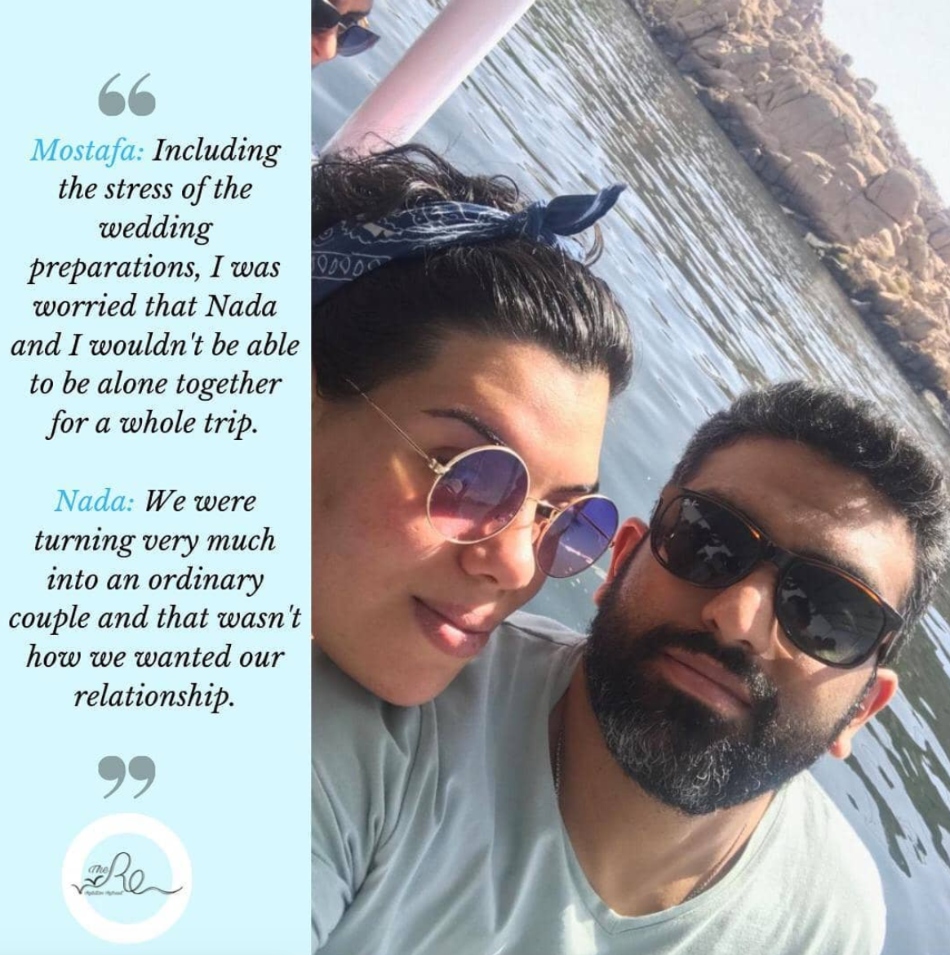




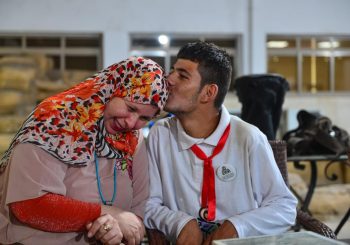
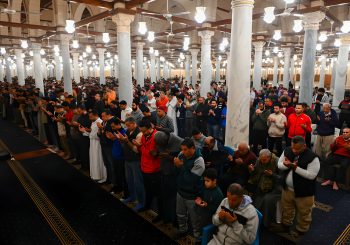

Comments (2)
[…] هل العلاج الزوجي في مصر يساهم في الحد من الخلافات الزوج… […]
[…] هل العلاج الزوجي في مصر يساهم في الحد من الخلافات الزوج… […]